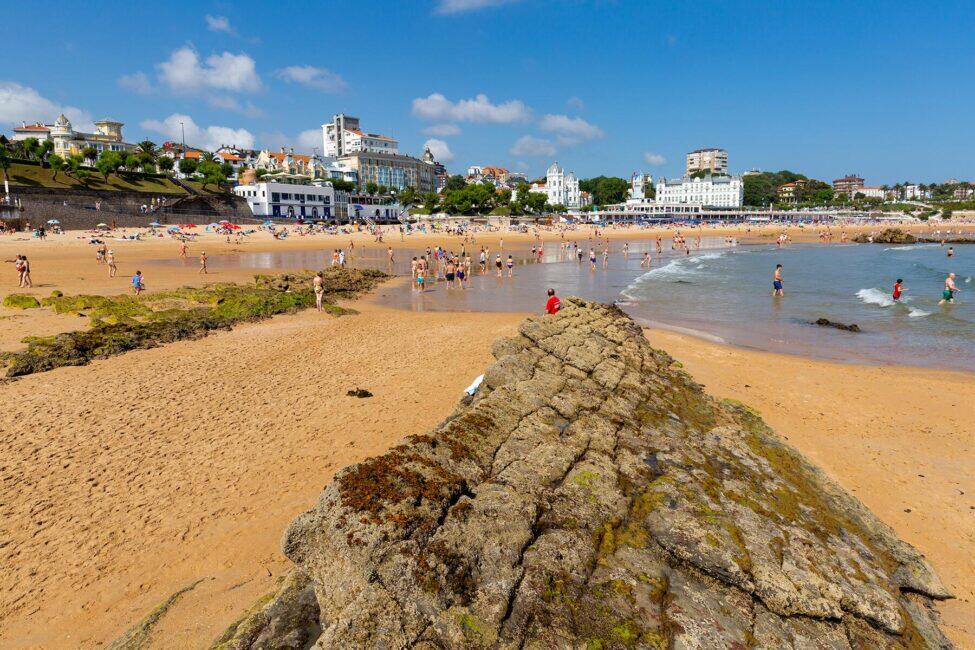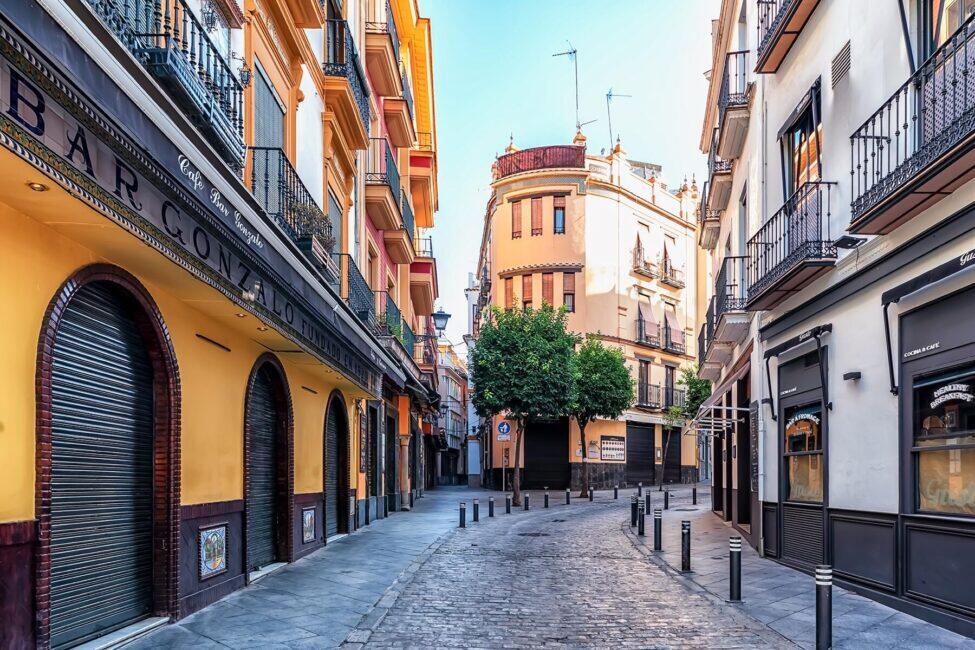Here's what you need to know before booking that trip to Barcelona.
For more than a year Spain has been closed to international travelers from outside the EU, except from a few very select other countries, but the Spanish government announced at the end of May that from June 7, all travelers vaccinated against COVID-19 would be allowed to enter.
“From June 7, all vaccinated people and their families will be welcome in our country, Spain, regardless of their country of origin,” Prime Minister Pedro Sánchez said at an international tourism fair in Madrid. “This summer we will safely receive all visitors that choose Spain as their holiday destination,” he continued.
Spain is ready to receive visitors once again and is welcoming them back with open arms, but after one of the world’s strictest lockdowns where residents weren’t even allowed to leave their houses for exercise, what can travelers expect from Spain and will they recognize it?
Entry Requirements
All travelers, fully vaccinated against COVID-19, can enter Spain, as long as their final vaccine shot was 14 days before their arrival in the country. They need to be able to prove they’ve been fully vaccinated by showing a vaccine certificate with all the necessary information such as identity, type of vaccine, and date of vaccination. Vaccines must be one of those authorized by the European Medicines Agency or included in the World Health Organization’s emergency use list.
All travelers must also fill out a health control form and undergo health checks, such getting their temperature taken on arrival. The health form can be found here. The only places that Spain is still not accepting fully vaccinated travelers from yet are India, Brazil, and South Africa, due to COVID-19 variants.
Recommended Fodor’s Video

What if I’m Not Fully Vaccinated Yet?
If you’re coming from the U.S., then you do need to be fully vaccinated in order to visit. However, if you’re coming from an EU country then you don’t have to be fully vaccinated if you’re able to show a negative COVID test or proof that you’ve had COVID instead. There are also exemptions for travelers coming from the UK, Japan, Australia, Israel, New Zealand, Rwanda, Singapore, South Korea, Thailand, and China.
Are There Any Restrictions Still in Place?
While many of Spain’s strict restrictions such as nightly curfews and bans on traveling between different regions have now been lifted, you will still find some in place. These include limiting bar and restaurant opening hours, and capacity limits in shops and cultural venues. But all this has not stopped Spain from being Spain–the jovial air has returned to the city streets, the summer weather has begun, beaches are filling up, and the tapas bars are open once again.
One of the first things you’ll notice is it’s mandatory to wear a mask all the time, even outside on the streets. In fact, there are very few places you can remove your mask legally. You may take your mask off when eating in restaurants, sitting in the park, sunbathing or swimming at the beach, or when doing certain sports or exercise. Because it’s so hot in most of Spain during the summer, make sure you bring a selection of masks you feel comfortable in and always bring a spare with you in case one breaks or you get too hot and sweaty.
Beaches are of course also open, although you may find restricted capacity or special socially-distanced spaces for sunbathing marked out on the sand, like some places did in the summer of 2020.
What Is Open?
Many of Spain’s most famous sights have been closed during the pandemic due to lack of visitors and COVID-19 restrictions, however, most of them are now reopening in anticipation. For example, Barcelona’s mesmerizing Sagrada Familia church reopened to visitors on May 29. At most cultural venues, you will find capacity restrictions in place, however, this doesn’t necessarily mean less availability of entry tickets. On the contrary, because of the lack of visitors, same-day tickets are available to many of the country’s renowned attractions, including Granada’s magnificent Alhambra Palace, which during normal years had to be booked months in advance. So now could be the perfect time to come.
You will also find several safety measures in place at major cultural sites such as temperature checks, hand sanitizer, and even air quality control. At Gaudi’s celebrated iridescent Casa Batlló in Barcelona, high-tech air purifying machines have been installed, along with ultraviolet light cleaning stations for headphones and audio guides.
You’ll also still find restrictions on nightlife. Madrid is known as the city that never sleeps and is well known for its late-night fiestas, but its legendary nightclubs have been closed for the past year. There are hopes to reopen them sometime in June, but as of yet, there are no fixed dates.

Cultural Differences
Travelers who have been to Spain before will notice several cultural differences since the last time they visited. Gone is the obligatory kiss on each cheek when you greet someone or are introduced to them for the first time, and interactions between friends are not as tactile as they used to be.
Spain’s much-loved tapas bars and restaurants have had a tough time during the pandemic. Most were not allowed to open for many months at a time and when they did they were often prohibited from opening for evening meals. This has had a devastating effect, with more than 85,000 restaurants having to permanently close across the country, including many famed and historic. Even celebrity chef Albert Adrià of El Bulli, formerly one of the world’s best restaurants, was forced to close down his legendary Barcelona restaurants.
Because of all these restrictions, Spaniards have learned to book in advance for both lunches and dinners, especially on weekends. And because there are still capacity limits in place, restaurants are often full. Many people are also still eating earlier than they used to because this is what they have gotten used to over the past year and half, but you’ll probably still find they eat later than you’re used to. If you decide to visit and want to eat at a particular restaurant, make sure you reserve in advance in order to avoid disappointment.
Why Spain?
Before the pandemic, Spain was the second most popular country for visitors in the world, just behind France, and for good reason. Its stunning coastline, quirky festivals, and historic cities attracted visitors from all over the world. In 2019, it welcomed 83.7 million visitors, however during the pandemic that number fell by 77%.
Despite everything, Spain still offers all that attracted visitors to its shores in the first place, and because it’s coming up to the summer season, you’ll discover it’s a great outdoor destination, offering plenty of rural beauty spots to keep away from the crowds too.
Over 12% of Spain’s GDP usually comes from tourism and in 2018, the sector employed more than 2.9 million people, according to data from Spain’s Instituto Nacional de Estadística. Because of this, Spain is desperate for visitors to return, and its hotels, museums, beaches, and splendid architectural sites are ready to welcome back travelers with all the latest safety measures in place.
From the quaint fishing villages and sherry towns of the Costa de la Luz to the wild Atlantic shores of Galicia and the ancient Moorish cities of Andalusia, visitors can take their pick of which Spain they want to discover.




